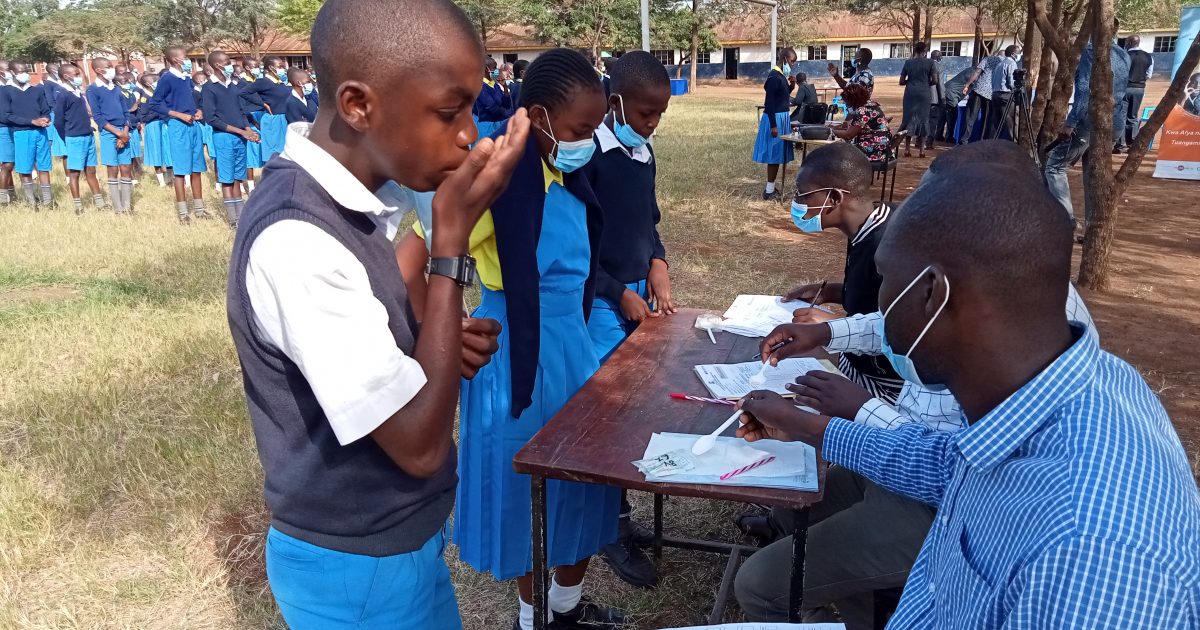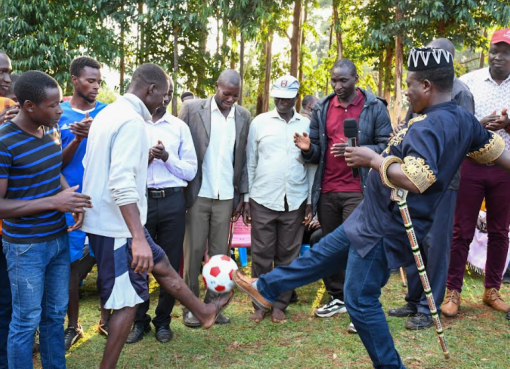Since the inception of school based deworming programme in 2009, school attendance has improved in the country as the children are in good health to live and learn without the scourge of parasitic worms, Education Chief Administrative Secretary, Dr. Sara Ruto says.
Ruto was speaking in Manyatta Primary School in Kisumu County where she witnessed the launch of the weeklong nationwide deworming exercise that kicked off on Wednesday.
“Rigorous research has mainly been conducted in Kenya, and it has shown that receiving the deworming treatment can improve children’s cognition, physical development and school attendance. These impacts yield long-term benefits to school children,” she said.
Speaking at the same event Nyanza Regional Education Director, Mr. Weru Mochocho reiterated that the exercise has boosted school attendance in the region since the children have become healthier and happy.
“This is a very important programme which has actually been going on in our region and has assisted to improve on the performance in academics and also in co-curricular activities,” he said.
Nyanza has enrolled 408,446 pupils for the deworming treatment that will be administered in over 19,000 primary schools out of the 23,000 learning institutions in the country.
Ruto lauded the collaboration from the Ministry of Health, that of Interior and Coordination of National Government as well as the Ministry of Education, Kenya Medical Research Institute (Kemri) and other stakeholders in implementing the initiative.
“This is the kind of collaboration that is needed when we are thinking about our children, because if teachers are going to give them the food for the brain, somebody needs to give them the food for their body. This activity is very important because it means we are paying attention to the child as a whole,” she observed.
World Health Organization (WHO) recognizes the deworming treatment that targets school going children who are at risk of contracting intestinal worms – a condition that affects their health, nutrition, and overall wellbeing.
“The treatment is safe, free, and highly effective and is globally recognized,” the Education CAS assured.
According to Evidence Action Organization, the programme has treated at least 6 million children aged 2 – 14 in areas of risk warm infection annually.
A study conducted by KEMRI showed that between 2012 and 2018, the prevalence of soil related diseases decreased from 62 percent of children sampled, proving that the programme has been effective in reducing warm infections in the country.
The second phase that has kicked off on September 15, will cover Narok, Nyamira, Kisii, Migori, Busia, Siaya, Kisumu, Homa Bay, Lamu, Tana River, Kilifi, Mombasa, Kwale, and Taita Taveta counties.
Jeremiah Ongwara, Kisumu County Public Health Officer says that the programme targets specific worms such as roundworms, hookworms and others common in the country.
By Robert Ojwang





